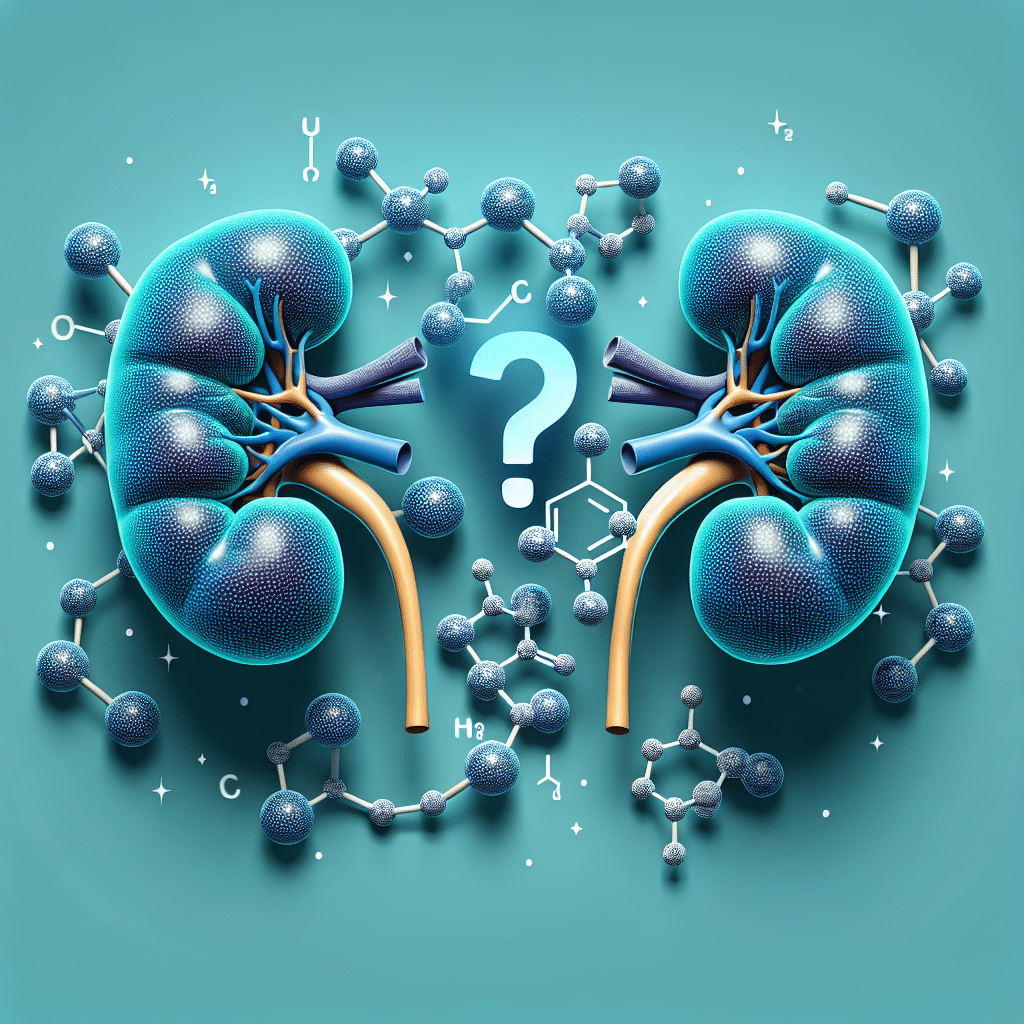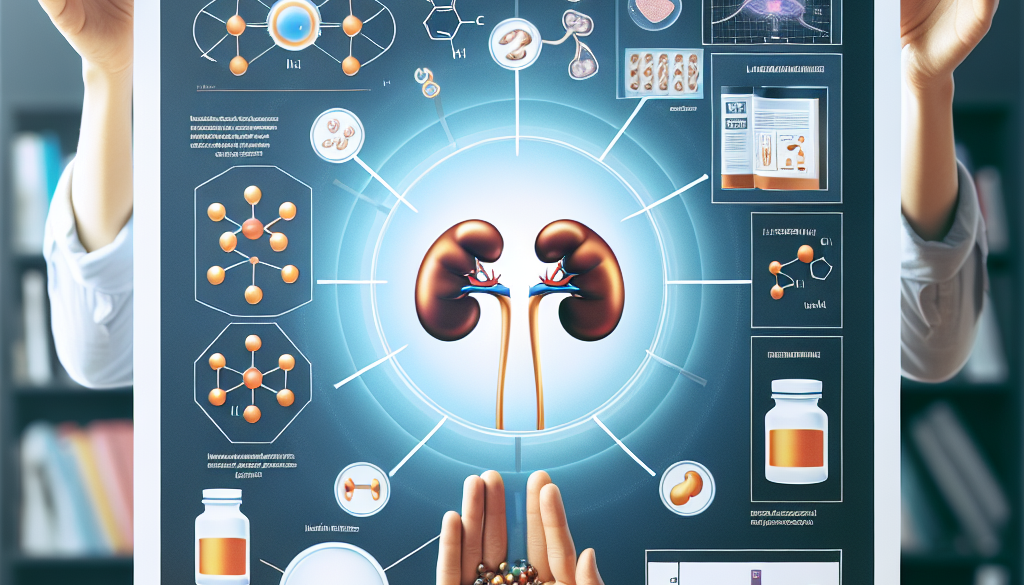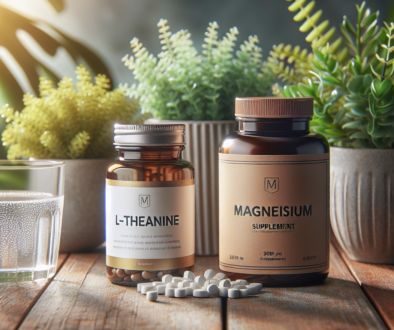Is L-theanine safe for kidneys?
-
Table of Contents
- L-Theanine and Kidney Safety: A Comprehensive Analysis
- Understanding L-Theanine
- The Kidneys: A Vital Organ
- Is L-Theanine Safe for Kidneys?
- Studies on L-Theanine and Kidney Function
- Considerations for Individuals with Kidney Disease
- Recommended Dosages and Potential Overuse
- Case Studies and Anecdotal Reports
- Interactions with Medications and Other Supplements
- Conclusion: Balancing Benefits and Risks
- Enhance Your Health with ETprotein’s High-Quality Protein Products
L-Theanine and Kidney Safety: A Comprehensive Analysis

L-theanine, an amino acid found primarily in tea leaves, has gained popularity for its potential health benefits, including stress reduction and improved cognitive function. However, with the rise in its use as a dietary supplement, concerns about its safety, particularly regarding kidney health, have emerged. This article delves into the current research to answer the question: Is L-theanine safe for kidneys?
Understanding L-Theanine
L-theanine is an amino acid analog of glutamate and glutamine, which are important neurotransmitters in the brain. It is known for its ability to cross the blood-brain barrier and promote relaxation without sedation. L-theanine is commonly consumed through tea, especially green tea, and is also available in supplement form.
The Kidneys: A Vital Organ
The kidneys are essential organs responsible for filtering waste products, excess water, and other impurities from the blood. These waste products are then excreted from the body in the form of urine. The kidneys also regulate pH, salt, and potassium levels and produce hormones that control blood pressure and red blood cell production. Maintaining kidney health is crucial for overall well-being.
Is L-Theanine Safe for Kidneys?
Research on L-theanine has primarily focused on its effects on the brain and cognition, with less emphasis on its impact on the kidneys. However, the available evidence suggests that L-theanine is generally safe for most individuals, including those with normal kidney function. Here’s what the research says:
Studies on L-Theanine and Kidney Function
There is limited research directly assessing the impact of L-theanine on kidney health. However, studies that have looked at the safety profile of L-theanine have not reported significant adverse effects on the kidneys. Animal studies have shown that L-theanine may even have protective effects against certain types of kidney damage.
Considerations for Individuals with Kidney Disease
For those with pre-existing kidney conditions, caution is advised when taking any supplements, including L-theanine. While there is no direct evidence suggesting that L-theanine is harmful to individuals with kidney disease, it is essential to consult with a healthcare provider before starting any new supplement regimen.
Recommended Dosages and Potential Overuse
The generally accepted safe dosage of L-theanine ranges from 100 to 400 mg per day. Consuming L-theanine within this range is unlikely to pose a risk to kidney health for individuals with normal kidney function. However, excessive intake of any supplement can potentially lead to adverse effects, and the kidneys may be particularly vulnerable to damage from overuse.
Case Studies and Anecdotal Reports
While scientific studies provide valuable insights, case studies and anecdotal reports can also shed light on the safety of L-theanine for kidneys. To date, there have been no widely reported cases of L-theanine causing kidney damage. Anecdotal evidence from individuals who consume L-theanine regularly, often in the form of tea, suggests that it is well-tolerated and does not lead to noticeable kidney issues.
Interactions with Medications and Other Supplements
One aspect to consider is the potential for L-theanine to interact with medications or other supplements that may affect kidney function. For example, nonsteroidal anti-inflammatory drugs (NSAIDs) can cause kidney damage when used excessively. Combining these medications with any supplement should be done under the guidance of a healthcare professional to avoid unintended consequences.
Conclusion: Balancing Benefits and Risks
In conclusion, the current body of research suggests that L-theanine is safe for kidneys, particularly when consumed within the recommended dosage range. Individuals with healthy kidneys who wish to enjoy the potential benefits of L-theanine can do so with minimal concern for kidney-related side effects. However, those with existing kidney conditions should exercise caution and consult with a healthcare provider before using L-theanine supplements.
The key takeaways from this analysis are:
- L-theanine is generally considered safe for individuals with normal kidney function.
- There is limited research on L-theanine’s impact on kidney health, but available studies do not indicate significant risks.
- Individuals with kidney disease should consult a healthcare provider before taking L-theanine.
- Consuming L-theanine within the recommended dosage range is unlikely to pose a risk to kidney health.
- Monitoring for potential interactions with medications and other supplements is important for kidney safety.
As with any supplement, moderation and adherence to recommended dosages are key to ensuring safety and maximizing health benefits.
Enhance Your Health with ETprotein’s High-Quality Protein Products
If you’re looking to complement your diet with high-quality protein sources, consider ETprotein’s range of organic bulk vegan proteins and L-(+)-Ergothioneine. Their products are designed to meet the needs of various industries, including nutraceuticals, pharmaceuticals, and food and beverage. With a commitment to non-GMO, allergen-free ingredients, and high purity levels, ETprotein is a trusted choice for consumers and businesses alike.
About ETprotein:
ETprotein, a reputable protein and L-(+)-Ergothioneine (EGT) Chinese factory manufacturer and supplier, is renowned for producing, stocking, exporting, and delivering the highest quality organic bulk vegan proteins and L-(+)-Ergothioneine. They include Organic rice protein, clear rice protein, pea protein, clear pea protein, watermelon seed protein, pumpkin seed protein, sunflower seed protein, mung bean protein, peanut protein, and L-(+)-Ergothioneine EGT Pharmaceutical grade, L-(+)-Ergothioneine EGT food grade, L-(+)-Ergothioneine EGT cosmetic grade, L-(+)-Ergothioneine EGT reference grade and L-(+)-Ergothioneine EGT standard. Their offerings, characterized by a neutral taste, non-GMO, allergen-free attributes, with L-(+)-Ergothioneine purity over 98%, 99%, cater to a diverse range of industries. They serve nutraceutical, pharmaceutical, cosmeceutical, veterinary, as well as food and beverage finished product distributors, traders, and manufacturers across Europe, USA, Canada, Australia, Thailand, Japan, Korea, Brazil, and Chile, among others.
ETprotein specialization includes exporting and delivering tailor-made protein powder and finished nutritional supplements. Their extensive product range covers sectors like Food and Beverage, Sports Nutrition, Weight Management, Dietary Supplements, Health and Wellness Products, and Infant Formula, ensuring comprehensive solutions to meet all your protein needs.
As a trusted company by leading global food and beverage brands and Fortune 500 companies, ETprotein reinforces China’s reputation in the global arena. For more information or to sample their products, please contact them and email sales(at)ETprotein.com today.











